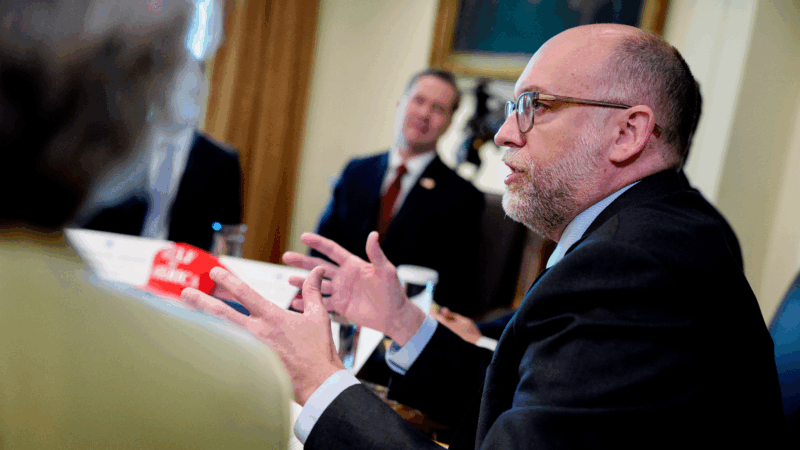Trump is proposing Congress cut $163 billion in non-defense spending next year
President Trump is set to propose $163 billion in cuts to non-defense discretionary spending for the 2026 fiscal year in what’s known as a “skinny budget” later on Friday.
Those cuts are for spending that Congress authorizes each year — which does not include spending on safety nets like Medicare, Medicaid and Social Security.
The cuts, first reported by the Wall Street Journal, represent a 22.6% cut in projected spending for the current fiscal year. They were confirmed by a spokesperson for the White House Office of Management and Budget who was not authorized to speak publicly ahead of the release of the budget proposal.
The “skinny budget” is a summary of budget proposals that presidents often release in their first term, followed later on by the traditional full budget books that include all spending and revenue projections.
Presidential budgets are wish lists. But Trump’s may hold more weight
While it’s Congress’ job to appropriate money, the president is required by law to send lawmakers a budget proposal each year. The proposal is not binding — it’s more of a list of the president’s policy priorities, with price tags attached.
Congress does not have to abide by what a president wants. But this particular budget may be more meaningful than usual, precisely because this Congress has not been inclined to ignore President Trump’s wishes.
“The president has a tighter grip on the Republican Congress now than he did in 2017, which may make Congress more likely to stick to the president’s proposals when they’re writing a budget,” said Jessica Riedl, a budget expert at the right-leaning Manhattan Institute.

Trump not only has Republican majorities in both houses — albeit slim majorities — but he also has a stranglehold on the GOP. He has remade the party, he throws his weight around in primaries, and lawmakers know it.
But perhaps an even bigger factor to consider is the cost-cutting project known as the Department of Government Efficiency, or DOGE, which has been attempting to cut government spending without Congress weighing in.
“DOGE has already begun enacting spending savings that are supposed to go through Congress unilaterally,” Riedl said. “And the president’s budget may essentially provide a preview of what DOGE will attempt to enact unilaterally, even if Congress doesn’t act.”
This is a developing story that will be updated.
Kate Hudson on regret, rom-coms and finding a role that hits all the notes
Hudson always wanted to sing, but feared it would derail her acting career. Now she's up for an Oscar for her portrayal of a hairdresser who performs in a Neil Diamond tribute band in Song Sung Blue.
A powerful winter storm is roiling travel across the northeastern U.S.
Forecasters called travel conditions "extremely treacherous" and "nearly impossible" in areas hit hardest by the storm, and air and train traffic is at a standstill in many parts of the region.
U.K. arrests ex-ambassador to the U.S. on suspicion of misconduct over Epstein ties
Police have arrested Peter Mandelson, a veteran Labour Party politician who served as British ambassador to the U.S., as part of an investigation into his ties with Jeffrey Epstein.
What NPR reporters will remember most about these Winter Olympics
NPR's reporters on the ground in Italy reflect on a far-flung, jam-packed Winter Olympics.
In the shadow of the Olympics, migrants search for a welcome in Milan
As Italy cracks down on migration, Milan takes a different path — offering shelter and integration to asylum seekers even as the central government tightens borders and funds deterrence abroad.
Trump to raise global tariffs. And, most say the state of the union is weak, poll says
President Trump says he is raising global tariffs to 15%. And ahead of the president's address tomorrow, most Americans say the state of the union is not strong, according to an NPR poll.







